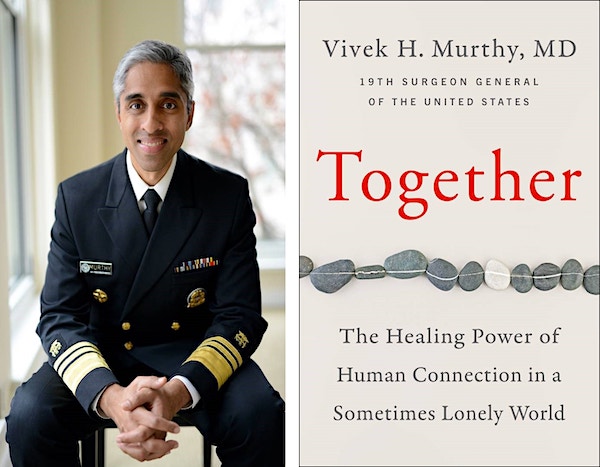
© REUTERS/Siphiwe Sibeko A volunteer receives an experimental coronavirus shot from a medical worker at Baragwanath Hospital in Soweto, South Africa, June 24, 2020. REUTERS/Siphiwe Sibeko
Dr Murthy Ny
00:46:06 - In this interview, Murthy Simhambhatla, president and CEO of SetPoint Medical, explains why he moved into the Medtech industry and how that path has. Lagatta J, Murthy K, Zaniletti I, Bourque S, Engle W, Rose R, Ambalavanan N, Brousseau D J Pediatr 2020 May;220:40-48.e5. Epub 2020 Feb 21 doi: 10.1016/j.jpeds.2020. This project discusses global health burden due to ozone and PM2.5. The number of deaths due to ozone is calculated using guidelines from Anenberg S.C. Doctors may have more than one area of specialty interest. Board certification in a specialty area means the doctor has completed formal training and has practice experience in that specialty, and has passed the certification examination from the corresponding accredited medical specialty board. Virality Daily Bringing you the most recent, interesting, viral and amazing content from around the world.
- People may need to get booster shots after the initial coronavirus vaccine doses in order to stay protected, experts say.
- Other vaccines, like the tetanus shot, also require periodic boosters.
- That adds further complication to the impending challenge of distributing coronavirus vaccines, which are likely to require two doses.
- Visit Business Insider's homepage for more stories.
We may still not know precisely how long immunity to the new coronavirus lasts, but researchers don't think it's forever.
'With human coronaviruses, you can get repeatedly infected — you're not immune for life, you're immune for some time,' Florian Krammer, a vaccinologist at the Icahn School of Medicine at Mount Sinai, told Business Insider.
'There's no reason to think this coronavirus will behave differently,' he added.
That means that even after coronavirus vaccines become available and get widely distributed, we'll likely need booster shots to stay protected over time.
'If immunity does turn out to be fleeting, we'll need a plan of a vaccination plus a booster, or revaccination at periodic intervals,' Marm Kilpatrick, a disease ecologist, previously told Business Insider.
Two shots to start, then perhaps boosters, too

The two leading coronavirus vaccine candidates so far, from Moderna and Pfizer, both require two shots. Moderna's two doses are administered a month apart, while Pfizer's are given three weeks apart.
The more shots we need, however, the harder it is to ensure everyone gets them.
Plus, a two-dose vaccine regimen comes with supply-chain challenges: it requires twice as many vials, syringes, refrigerators, and clinic visits at a time when such resources are already limited.
© Provided by Business Insider An advertisement offering free flu shots in New York City on August 21, 2020. John Nacion/SOPA Images/LightRocket/Getty ImagesBut even after all those problems are mostly solved, a new challenge will arise: the need to figure out when our immunity fades, and if — or when — a booster shot is needed.
'Once we start seeing vaccine failures increasing, then we can consider booster doses,' Walt Orenstein, the former director of the US National Immunization Program, previously told Business Insider. He added, though, that 'we don't know at this stage whether that will be necessary.'
Some viruses, like hepatitis A or measles, are a one-and-done deal: Once you're infected (or inoculated), you're immune for life. But with coronaviruses, reinfection is possible after a period of months or years, according to the Mayo Clinic. That only happens to a fraction of people, though, and their second illness is usually mild.
Video: We know that these vaccines are highly effective, as safe as others: Moncef Slaoui (ABC News)

Indeed, limited evidence suggests people could get reinfected with the new coronavirus. Some research has found that coronavirus antibodies decline after a period of months, which could mean our immunity might be similarly transient. Given that the efficacy of a vaccine hinges on its ability to prompt the body to generate antibodies, it's therefore unlikely coronavirus shots will be a one-time affair.
But our immune systems do have more than just antibodies defending us from future infection, and a recent study suggests those other defenses stick around for at least six to eight months.
Time will tell if we'll need boosters
It's not a deal-breaker if people become susceptible to reinfection.
'This happens for a lot of vaccines,' Krammer said. 'It's not a problem. You can get revaccinated.'
That's what booster shots are for. Your tetanus vaccine, for example, requires a booster every decade. The question is how frequently follow-up coronavirus shots might be needed, but experts won't be able to answer that until vaccines are widely distributed.
© VINCENZO PINTO/AFP via Getty Images Capped vials of the University of Oxford's coronavirus vaccine candidate. VINCENZO PINTO/AFP via Getty ImagesFor now, Orenstein said, public-health officials should start making a plan now to keep track of how well the shots work long-term:
'It's critical, as the vaccine is rolled-out, to have continued evaluation,' he said, adding, 'we need to measure vaccine effectiveness in observational studies to see whether it declines or not.'
That work, he said, should begin alongside the earliest vaccine rollouts.

'We don't want to wait two, three, four years before doing so,' Orenstein added.
Read More:Meet Dr. Vivek Murthy, Biden's front-runner for Health secretary and COVID wingman. His resume and past comments on guns are raising bipartisan concerns if he's the right pick.
Monitoring will also be crucial to determine whether the vaccine efficacy that Moderna and Pfizer have found in their trials — 94.5% and 95%, respectively — hold up outside of clinical conditions in the first place.

For example, researchers could implement a surveillance system that looks at new COVID-19 cases and notes how many infections are diagnosed in vaccinated versus unvaccinated people, Orenstein said.
'If the rates are comparable, that's a sign of waning immunity, he said. 'That's when we'd need to determine whether boosters are necessary, and if so, how often.'
© Youngrae Kim/Chicago Tribune/Tribune News Service via Getty Images A college student in Chicago, Illinois, gets tested for coronavirus. Youngrae Kim/Chicago Tribune/Tribune News Service via Getty ImagesBut if it turns out that people need to be revaccinated regularly, that decreases the likelihood that people will get the shots they need to stay protected.

Murthy Medical Poughkeepsie
'The more complicated the schedule, the more difficult it is to get people to come in,' Orenstein said.
